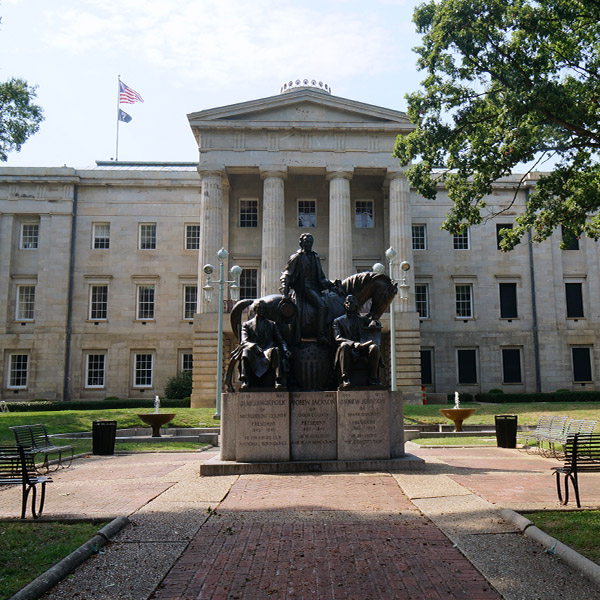A group of North Carolina businesses urged the state’s legislature and governor to support studying “wholesale market competition options,” including an RTO, saying they were “concerned over limited access to cost-competitive, clean energy.”
In a letter sent Thursday to the General Assembly and Gov. Roy Cooper (D), the businesses endorsed North Carolina House Bill 503, introduced in March. The bill would direct the North Carolina Collaboratory — a clearinghouse established among the state’s public universities to provide useful research data to state and local governments — to “evaluate reform of the [state’s] regulatory wholesale electricity market.”
Studies undertaken under the bill would have to include an evaluation of designated market structures — an RTO within either North and South Carolina or the entire Southeast U.S.; an energy imbalance market within the same areas; or participation in the Southeast Energy Exchange Market (SEEM) — along with “any other market reforms the Collaboratory [deems] appropriate.”
In May, the South Carolina Legislature received a report that said participating in an RTO could provide the state benefits of up to $362 million per year. (See Brattle Report Sees Benefits for SC RTO Membership.)
Signers of the letter include hotel chain Marriott, food and beverage brands Sierra Nevada and Nestle, solar power developer Carolina Solar Energy, and Unilever, along with advocacy groups such as the Carolina Utilities Customer Association and the Clean Energy Buyers Association (CEBA).
In a statement on CEBA’s website, Reese Rogers, the organization’s Southeastern market and policy innovation manager, said “expanding [the state’s] market options … would help drive innovation and cost savings for all energy customers and improve grid reliability and resilience.”
“House Bill 503 would open a path for North Carolina to move toward greater options for customer choice and grid reliability,” Rogers added.
Despite the legislation’s nod toward SEEM, CEBA has been an active opponent of the market since it was proposed. It is party to a lawsuit in the D.C. Circuit Court of Appeals seeking to overturn SEEM’s approval by FERC in 2021. (See Environmental Groups Appeal SEEM in DC Circuit.)
Topics to be examined under the legislation include the costs, benefits and risks to a range of stakeholders from both the state’s current electric system and potential market changes in terms of generation capacity adequacy and diversity, customer service and rates, environmental quality, and other factors. The Collaboratory would also be tasked with identifying any laws, regulations and policies that may need to be changed to implement reforms, their impact to disadvantaged populations and communities, and any challenges associated with nuclear plants within the state.
While the proposed studies do not specifically mention reliability, the topic is prominent in the bill’s introduction, which says “North Carolina must be prepared for future weather events,” such as the 2022 holiday storms that led Duke Energy to implement rotating outages that left about 500,000 customers without power. (See North Carolina Regulators Face Questions on Holiday Outages.)
The introduction links the topics of reliability and market reform by noting that the state’s electricity is predominantly “provided by vertically integrated … distribution and transmission” utilities, and citing previous legislation requiring utilities to “diversify the resources used to reliably meet … energy needs.”
The businesses’ letter also referred to the winter storm blackouts, saying they “highlight the urgent need for sufficient reliable and affordable electricity in North Carolina.” The businesses added that the “ability to source clean, competitively priced [reliable] electricity … is a core factor in where we decide to make or maintain investments” and warned that “limited access to cost-competitive, clean energy” might discourage companies from doing business in the state.




